
UTAR Kampar JCC organises first virtual Shogi workshop on Discord
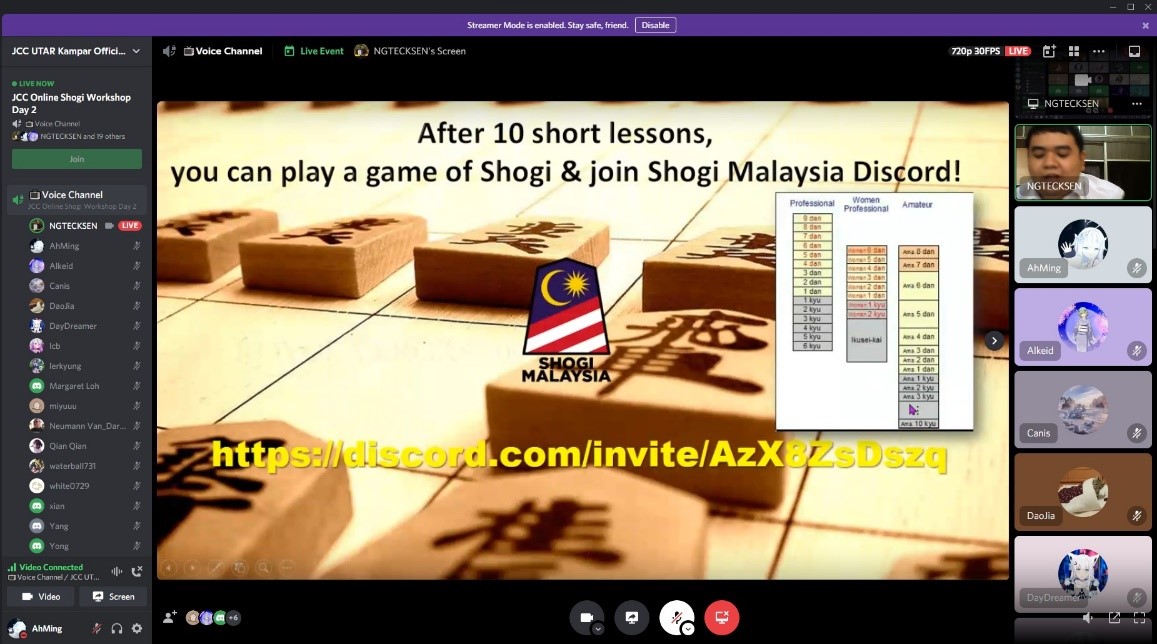
The two-days Shogi Workshop
With the aim to promote and encourage exposure to Japanese culture via Shogi, UTAR Japanese Culture Club (JCC) from Kampar Campus organised its first virtual “Japanese Shogi Workshop” on 6 November 2021 and 13 November 2021, via the JCC Official Discord Server on Discord and Lishogi.org. A competition was also held on the second day of the workshop.
Invited to conduct the workshop was Amateur Shogi Player, 1 Dan and Italian Shogi Federation Special member Ng Teck Sen. He is also acknowledged as the Best Author of International Shogi Magazine (ISM) and the winner of the World Shogi League (WSL) 2019. The event was moderated by JCC auditor, EXCO Batch 2021/2022 Kee Sheng Ming.
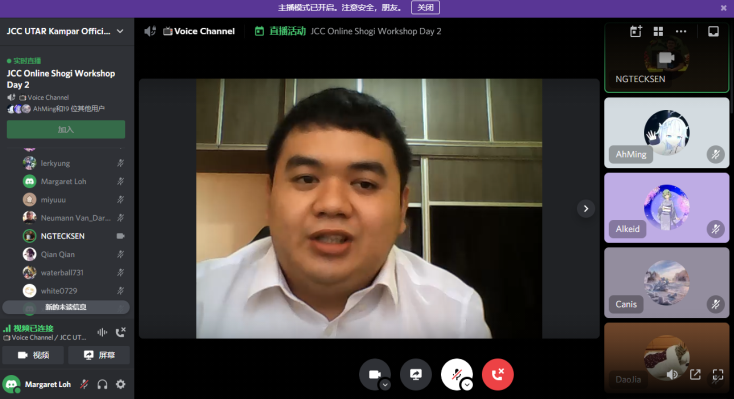
Ng is a professional board gamer
According to Kee, Shogi (将棋) is the Japanese form of Chess. It is the most popular chess variant native to Japan and has been around in its current form since the 16th century. He said, “Shogi is not hard to learn. In my opinion, the biggest obstacle for most of the new players is learning the pieces. All Shogi pieces have the same shape and colour. The players need to recognise the pieces according to the names which are written using the Japanese kanji characters. Some might be confused with the names if they do not know the Japanese language. The best way to learn Shogi is to simply dive in and play. After several games, I am sure they will recognise the pieces’ names and remember their moves.”
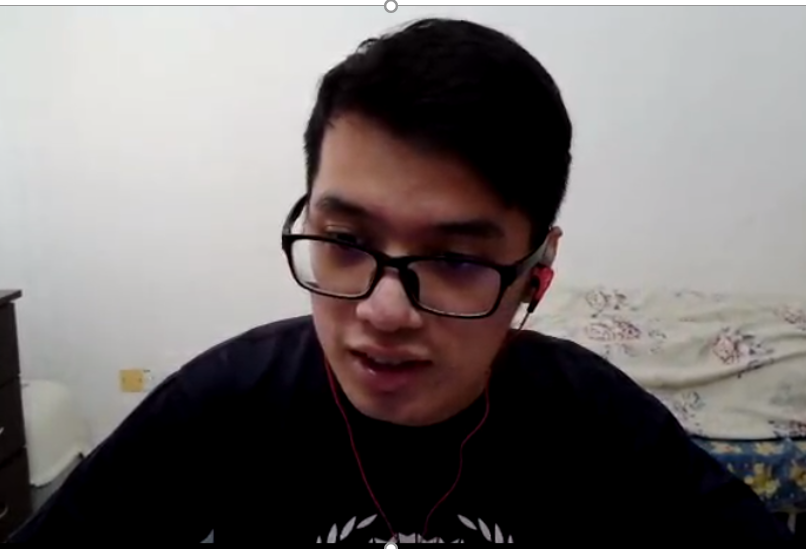
Kee is a fan of the Shogi board game
During the session on the first day, Ng shared all the simple moves of every Shogi piece with pictures. There were ten lessons in total and the participants were able to play the Shogi game from the beginning till the end after attending the workshop. The teaching session was followed by hands-on training, guided by Ng. All the participants were invited to do practice via lishogi.org, an online platform to play Shogi games. Different strategies were also shown via live games. It was presented by Kee and other opponents.
Ng explained, “Unlike the 8×8 Western chessboard, Shogi is a 2-player game that comes with a 9x9 squares Shogi board and 40 Shogi pieces. Alternatively, you could also prepare two-piece stands and a chess clock for the game. Different from the Chess game which begins from the ‘white side’, the Shogi game always begins from the ‘black side’. Although Shogi has some pieces that are very similar to Western chess, which entails a king, pawns, rook, bishop, and knight, Shogi also has pieces that are not found in Western chess, such as the gold generals, the silver generals and the lance. All pieces except the kings and golds could be promoted by entering, moving within, or leaving the enemy’s territory.”
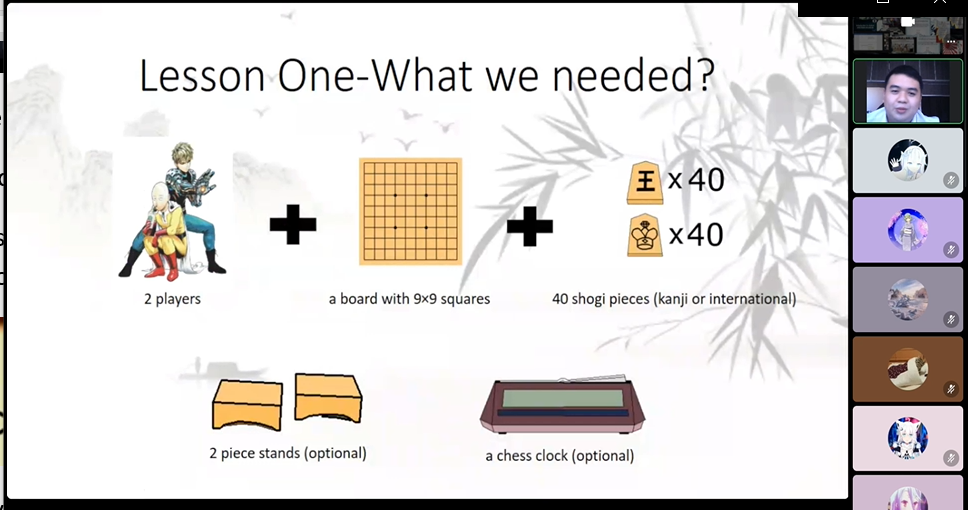
Ng explaining the Shogi set
He added, “Compared to the Western and Chinese chesses, one of the most exciting aspects of the Shogi game is that a captured piece can be returned to the board. When opposing pieces are captured in Shogi, they become loyal to the player that captured them. These captured pieces are then dropped back on the board to continue the game. However, those Shogi pieces cannot be promoted by dropping and entering the enemy’s territory. Pieces dropped in the enemy’s territory can be promoted the next time they move.”
An online Shogi competition was held on the second day of the Shogi workshop. The participants who learned to play Shogi on the first day competed in the competition via Lishogi.org.
The top three winners were Faculty of Information and Communication Technology (FICT) students Lee Chin Bin and Ong Kok Zhao, and Lee Kong Chian Faculty of Engineering and Science (LKC FES) student Eric Tan Jingqing.
Kee enthused, “All participants are encouraged to stay in the official JCC Discord community server after this Shogi workshop. I hope you will continue to play the Shogi board game with one another even after this workshop.”
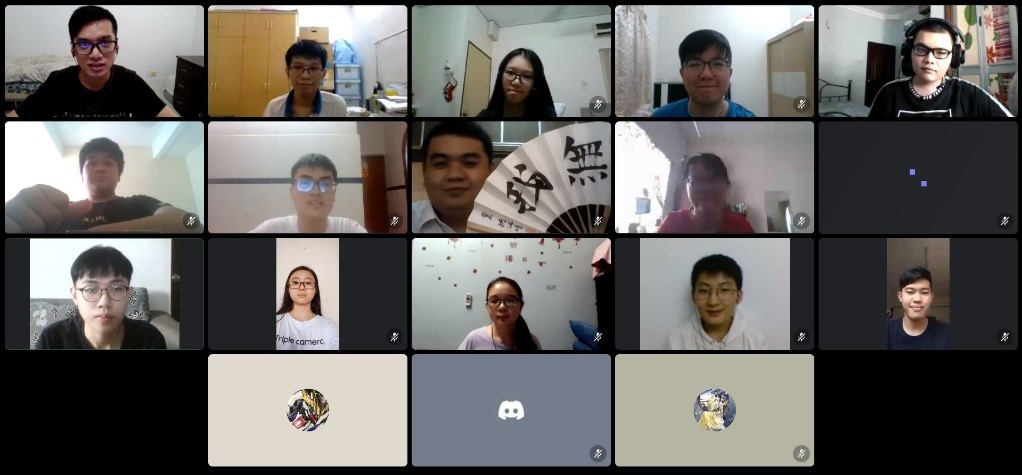
Ng (second row, middle) with participants on the first day of the Shogi Workshop
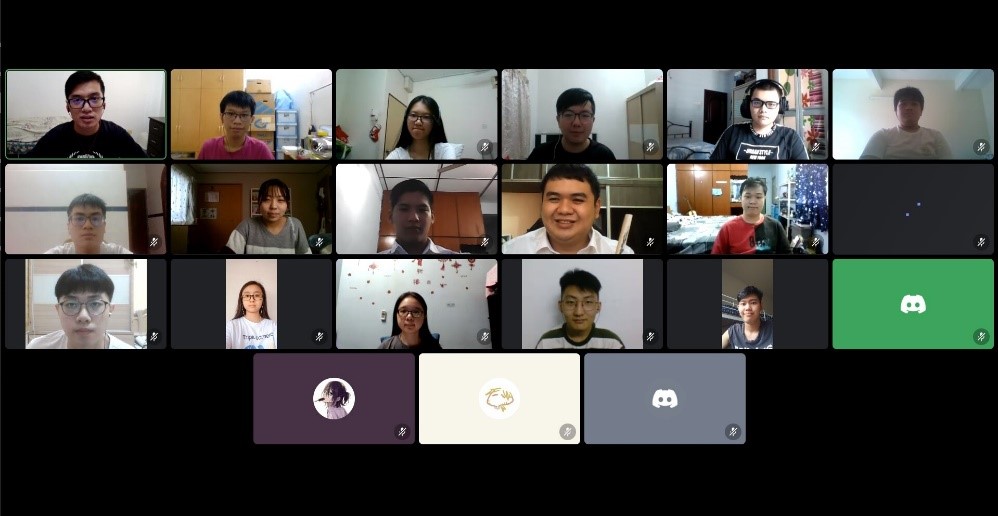
Ng (second row, third right) with participants on the second day of the Shogi Workshop
© 2021 UNIVERSITI TUNKU ABDUL RAHMAN DU012(A).
Wholly owned by UTAR Education Foundation (200201010564(578227-M)) LEGAL STATEMENT TERM OF USAGE PRIVACY NOTICE